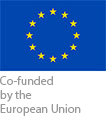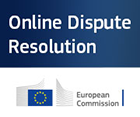Counterfeit goods: illegal and dangerous
A beautiful fake designer bag from abroad, an illegal copy of a new movie, a lookalike of an extremely expensive smartphone. There’s a lot of temptation to snap up these products. You might even buy them unwittingly, because the replicas are barely distinguishable from the originals.
But a purchase like this is always illegal, whether you knowingly bought the counterfeit product or if you’ve been the victim of a fraudulent seller. What’s more, it can be punishable, and it might be dangerous, because your purchase may be supporting a criminal network. Plus, you’ve bought a product that wasn’t manufactured according to social regulations and environmental laws.
So there are plenty of reasons not to buy fake items. Are you still not convinced? Want to know more? ECC Belgium explains:
- how counterfeit products endanger your health and safety;
- why they can cause financial headaches;
- how you can avoid becoming the victim of counterfeit sellers;
- what to do if you do fall victim.
Unhealthy and unsafe counterfeit goods
Counterfeit products are manufactured illegally and don’t meet national or international standards. This isn’t only a social problem — they can also harm your health and safety. How? ECC Belgium shares some real-life examples:
- The ingredients of illegal drugs aren’t controlled. As a result, they don’t always treat your ailments, and in some cases, they even make them worse.
- Fake sunglasses don’t contain a UV filter, so they don’t protect your eyes from harmful sunlight.
- Counterfeit toys may contain chemical ingredients that are hazardous to your child. There is also no inspection of the toy’s parts, meaning they could come loose and cause choking.
- Counterfeit brake pads reduce your car’s braking power and increase the risk of accidents.
- Fake branded perfumes may contain harmful substances and irritate your skin.
Buying counterfeit goods: financial consequences
Several laws prohibit the purchase of counterfeit products. These include the European Regulation 608/2013, which prohibits the import of counterfeit and pirated products into the territory of the European Community. If you break these rules, even unwittingly, you may be left with a financial headache. Some scenarios:
- you buy counterfeit goods on holiday
- you buy counterfeit goods online
- you buy a large quantity of counterfeit products
Buying counterfeit goods on holiday
Although they’re illegal, customs officers in Belgium usually won’t take action over a pair of fake designer sunglasses. The counterfeit product is part of your personal luggage and you don’t intend to resell it. But beware: in some European countries, such a purchase can result in a fine. In Italy, for example, you’ll pay a hefty fine if you’re found in possession of counterfeit products.
Buying counterfeit goods online
You buy a counterfeit product online and customs intercepts it. They may confiscate and destroy your purchase. The costs are borne by the official trademark holder, but they may — depending on which national legislation applies — pass those costs on to you.
Belgian customs may also charge you damages, unless you can prove that you bought the goods in good faith — for example, if the website doesn’t mention a brand or if the price is credible. In Belgium, you won’t face a criminal sanction, whereas in other European countries, you might.
Buying large quantities of counterfeit goods
In this case, you may be considered a rogue trader who is knowingly importing counterfeit products in order to resell them. You then risk damage claims and criminal prosecution, and customs officers may seize and destroy your goods. To find out more about the role of the customs service, consult their website or this document (French and Dutch).
How to recognise counterfeit sellers
Scammers selling counterfeit products are becoming increasingly professional. Their products sometimes look so good that you can’t distinguish them from the originals. Criminal sellers offer their goods not only on the street but also online. Do you want to learn to recognise fake items better?
- Critically assess the quality and price of the goods.
- Always do the WebshopCheck before every online purchase.
- Consult the official website of the brand in question. They will often list all authorised vendors, so you can check whether the sales outlet you’re looking at is listed.
You’ve bought a counterfeit product. What now?
Have you bought a counterfeit product? Then you risk not only having to pay damages to the trademark owner but also having to pay destruction costs. If you knowingly bought counterfeit items, you have no defence. If you were misled, take these steps:
- If you inadvertently bought a counterfeit product, notify the party claiming money from you. Challenge the invoice from the trademark owner or their lawyers in writing and prove that you bought the product in good faith. Include at least one of the following documents:
v the vendor’s advert or purchase confirmation showing that:
1. the brand name wasn’t mentioned;
2. you paid a reasonable, realistic price; or
3. you bought the product as a private individual.
v ea link to the website showing that it looks professional. - Do not sign a statement promising that you will never again buy counterfeit goods on pain of a fine. You cannot predict that you will never be misled again.
- If you paid with your credit card, dispute the payment via your card issuer. This tells you the best way to do this.
Learn more about counterfeit goods
Would you like to learn more about counterfeit goods, how to recognise them and what to do if you buy counterfeit goods on the internet? Read the brochure Is it safe to buy counterfeit goods? Studies by the European Union Intellectual Property Office also highlight the dangers of counterfeit products. How do Belgian customs officers intercept and investigate counterfeit goods? Find out on the website of the FPS Finance.
As a professional, would you like to better protect yourself from counterfeit sellers? Or would you like to take part in awareness-raising campaigns? Contact the No to Counterfeit foundation, an initiative of the International Chamber of Commerce and Belgian customs. Several partners such as FPS Finance and ECC Belgium are involved. For example, ECC Belgium was involved in the #ImNotFake campaign.


